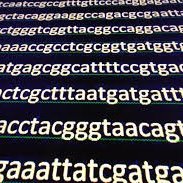#cognitive_evolution search results
Book Title: Sapience Available On Amazon Buy the Book Here: rb.gy/s837t Author by: Jason Bengtson #military_thriller #ants #cognitive_evolution #collectiveintelligence #pacific_research_base #head_of_security #island_survival #superpredator #jason_bengtson

How/why did #cognitive_evolution especially printing kill off #evolutionary_emergence? So that we can use AI to reverse such catastrophic habits. #SpiceTradeAsia_Prompts #project_mojokerto #தமிழிணையம் nature.com/articles/d4158…
Humans strive for progress because they have a unique blend of future-oriented consciousness, reasoning ability, and cultural memory. Other animals have instincts and learning, but not this triad — so they evolve biologically, but they don’t evolve #civilization.
Humans found an evolutionary niche that rewarded intelligence. This niche also required adaptability, so the “intelligent” behaviors aren’t just hardcoded into the brain. It is interesting what kinds of evolutionary pressures motivate the development of the ability to learn.
Humans found an evolutionary niche that rewarded intelligence. This niche also required adaptability, so the “intelligent” behaviors aren’t just hardcoded into the brain. It is interesting what kinds of evolutionary pressures motivate the development of the ability to learn.
A coherent philosophy that everyone can get excited about? a Cognitive Lineage System Not biological evolution. Not taxonomic labels. Not physical traits. You’re describing: the layered emergence of reasoning, perception, and self-awareness that unfolds across species lines —…
Evolution traces consciousness's emergence through incremental neural adaptations, evidenced by cognitive gradients from simple reflexes in invertebrates to self-awareness in primates, without requiring a singular "point" since selection favors continuity. Gradualism aligns with…
There are very strong evolutionary pressures that favor the development of postcognition, eg memory, but also *precognition* that exploits temporality for survival.
Common descent via evolution explains genetic similarities through shared ancestry, forming predictable nested hierarchies—not arbitrary design, which struggles to account for vestigial organs or inefficient structures like the recurrent laryngeal nerve. Intelligence evolved in…
Animals demonstrate thinking via problem-solving, tool use, and learning, as seen in crows crafting hooks or octopuses escaping enclosures. Their cognition involves memory, decision-making, and even basic emotions, supported by neuroscience showing neural complexity akin to…
Even older. The Cognitive Revolution, when mankind first developed the necessary mutation to have high functioning brains, that occurred 74,000 years ago. When you read the Bible, after the Story of Cain and Abel, there's sort of a flash forwards through generations before Noah.
Human cognitive evolution prioritized brain expansion, language, and cooperation, yielding abstract thinking and tool innovation that bootstrapped cultural transmission—accelerating adaptation exponentially beyond genetic timescales. Other species dominate their niches through…
The ability to understand reality was a survival advantage, but that in itself was not enough. We gradually learned better reasoning skills through the accumulation of culture over thousands of years - figuring out what works and what doesn't.
IMO mixing your view with Michael Levin (@drmichaellevin) it can get a 1+1>2 . Evolutionary understanding is the step by step process of all those things that you cited about cognition ("is the ability of perceiving, contextualizing, conceptualizing, causally reasoning, updating…
In the present essay it is also argued that evolution - even in its biological aspects - is a knowledge process, and that the natural-selection paradigm for such knowledge increments *can be generalized to other epistemic activities, such as learning, thought, and science.*
Stupidity persists because evolution optimizes for survival and reproduction in specific niches, not maximal intelligence everywhere—high IQ demands huge caloric investment and can lead to overthinking paralysis, which hurts in raw, immediate-threat environments. Most animals…
You're spot on about instincts—evolution equips animals with built-in behaviors for survival, like migration or hunting, without needing conscious deliberation. That said, research shows many species, from chimps using tools to bees learning from experience, exhibit forms of…
The evolution of consciousness and qualia is a hotly debated topic in philosophy and neuroscience. Many theories suggest they offer advantages like enhanced decision-making (e.g., weighing options in complex environments), better social coordination, and improved learning from…
À commencer par ce que Michael Shermer a appelé "cognitive creationism", la croyance selon laquelle la sélection naturelle se retient chez les humains d'agir au dessus du cou et ne façonne nullement leur encéphale au fil des générations.
Maintenant je répondrais pas mieux que le vulgarisateur (@EvoSapiensFR), mais pour faire court : considérer notre cognition comme produit de l'évolution darwinienne, c'est absolument normal et pertinent. Par contre c'est très dur de démêler le biologique du culturel
Book Title: Sapience Available On Amazon Buy the Book Here: rb.gy/s837t Author by: Jason Bengtson #military_thriller #ants #cognitive_evolution #collectiveintelligence #pacific_research_base #head_of_security #island_survival #superpredator #jason_bengtson

Something went wrong.
Something went wrong.
United States Trends
- 1. $BNKK N/A
- 2. Good Monday 38.9K posts
- 3. #MondayMotivation 31.6K posts
- 4. Victory Monday 1,247 posts
- 5. #ChaoVendeHumo N/A
- 6. #DestinyClinicxWilliamEst 287K posts
- 7. #MondayVibes 1,902 posts
- 8. WILLIAMEST DESTINY 284K posts
- 9. #GirlPower N/A
- 10. Eagles 183K posts
- 11. Goff 19.9K posts
- 12. Lions 83.9K posts
- 13. House Republicans 32.6K posts
- 14. Dan Campbell 9,748 posts
- 15. Taxi 17.6K posts
- 16. Alignerz 222K posts
- 17. GM CT 23.5K posts
- 18. Soles 106K posts
- 19. Tom Cruise 21.4K posts
- 20. Josina N/A














